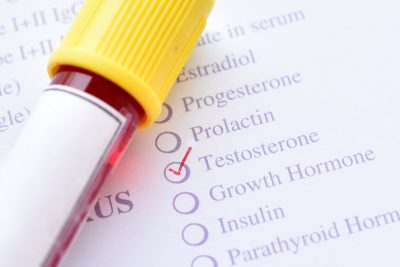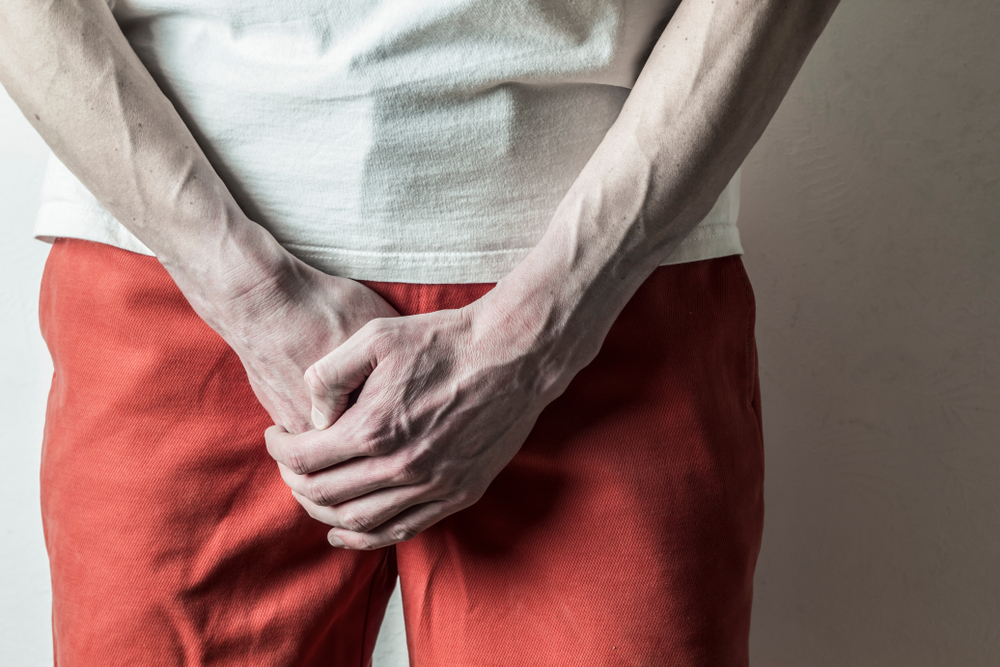Ejaculation usually results in an increase in prolactin and a temporary decrease in dopamine, but it doesn’t result in testosterone changes. In as much as prolactin and dopamine are both highly involved with testosterone, they do not influence testosterone levels.
What is Testosterone?
Testosterone is a sex hormone that plays significant roles in the body. In men, testosterone regulates libido, fat distribution, strength and muscle mass, and sperm production. Small amounts of circulatory testosterone are usually converted to estradiol – a form of estrogen. As men age, their testosterone level drops so does the production of estrogen.
What is Ejaculation?
When you have an erected penis and get sexually excited, a sticky liquid eventually makes its way through the opening of your penis, and this is called ejaculation. There are many terms associated with ejaculation and they include cum, ejaculate, or jizz; either one is recognized by most people.
Ejaculation happens when a man reaches orgasm through sexual stimulation, but you may also be able to ejaculate without actually achieving orgasm through sexual stimulation.
Ejaculation is called semen or cum, and is not to be confused with urine, which is stored in the bladder. You can’t do both of these bodily functions since the same opening is used for both, because your body stops your bladder from allowing urine to enter your penis when you are close to ejaculation. That’s why it’s sometimes difficult to pee when you have an erection.
How Does Ejaculation Work?
Ejaculation may feel like a glorious mess, but in reality, it’s the integration of three branches of the nervous system, triggering a surge of contractions in striated muscles.
How Often Should a Man Ejaculate?
Ejaculating can be likened to having an orgasm, while some can have an orgasm without actually shooting their load. Ejaculate contains a variety of substances, including cholesterol, mucus, citric acid, and fluid from the seminal vesicles, the bulbourethral glands, and the prostate, but its primary function is to deliver sperm.
 Research has shown that how often a man ejaculates would affect his health, sperm count, and of course, his overall mental and physical health. While evidence against not ejaculating is scant, ejaculating more frequently has been shown to reduce your chances of getting prostate cancer.
Research has shown that how often a man ejaculates would affect his health, sperm count, and of course, his overall mental and physical health. While evidence against not ejaculating is scant, ejaculating more frequently has been shown to reduce your chances of getting prostate cancer.
Many men often wonder if their sexual behavior is normal; they fear that they may not be having as much sex as their peers or are masturbating and ejaculating too much.
The simple truth is that there is no recommended number of times a man should ejaculate. The average ejaculation frequency varies based on many factors, including:
- Health
- Age
- Relationship status
What is safe?
There is no guideline which states how frequent a man should ejaculate whether alone or with his partner. Many myths about the dangers of regular masturbation exist, but there is no evidence that frequent masturbation can harm one’s health.
Likewise, most people don’t consider constant consensual sex with a partner to be harmful as long as both partners:
- Adopt safer sex strategies
- Enjoy their actions
- Steer clear from sexual activities that would cause pain
Effects of Ejaculation on the Health
Ejaculation doesn’t result in low testosterone levels; instead, it has many numerous benefits. Ejaculation from partnered sex can be beneficial because:
- Sex is a form of exercise, and exercise reduces the risk of cardiovascular disease, diabetes, and many other health problems. It even reduces the risk of obesity, which in turn causes an increase in testosterone levels in men.
- Sex may relieve stress and even improve your whole mood.
- Having frequent sex and ejaculating at least once a week would improve your immune system.
- Ejaculation sometimes offers relief from the pain associated with several conditions.
- Ejaculation can help reduce sexual tension and reduce anxiety.
Many men find out that after ejaculation, they can sleep better. Men who worry about sperm production should know that the body doesn’t stop producing sperm. Frequent ejaculation would not cause the body to run out of sperm at any point. Although it takes an average sperm about 74 days to fully mature, the body makes millions of sperm per day, so you can’t possibly run out.
Men who have healthy sperm count should not worry about the effects of regular ejaculation, as it doesn’t affect the testosterone level.
Is There Any Reason To Control How Much You Ejaculate?
There is an old belief that controlling how much you ejaculate helps you preserve a substantial amount of energy. Abstaining from ejaculation is believed to allow the energy contained in the sperm to return to the brain and supply it with the unused energy. However, these ideas aren’t backed by any hard science, so it is refutable.
Relationship between Ejaculation and Testosterone Level
Testosterone is linked to your sex drive, but it has a more direct effect on the male sex drive. Testosterone levels naturally rise during sex and fall after an orgasm, but it doesn’t any direct impact on the serum testosterone levels.
Higher serum testosterone levels are found in men who practice abstinence, and there is usually a minimal increase in the Luteinizing Hormone. Although higher testosterone levels are linked with men who abstain from sex, orgasm doesn’t exactly affect the body’s level of testosterone.
It has been discovered in older studies that abstaining from sexual activities for about three months would lead to a reduction in the testosterone levels until sexual activity is resumed. Recent researches haven’t been able to back up this claim correctly, but there is still no counter-evidence at the moment.
Rumors abound as to whether ejaculation affects testosterone levels; the short answer is “No.” Ejaculation hasn’t been shown to have any adverse effect on testosterone levels. However, the long answer is quite complicated. Ejaculation can sometimes have a variety of impacts on the testosterone levels, but mostly short term effects.
Refraining from masturbation and sex for about three weeks may cause a slight increase in testosterone levels.
Relationship between Ejaculation, Muscle Building and Testosterone Levels
Ejaculation only affects testosterone levels on a short-term basis. It won’t stop you from building the muscle of you have a healthy muscle building regime.
Testosterone helps to build muscles because it aids the muscles in synthesizing protein. Research has shown that short periods of abstinence can cause a slight spike in testosterone levels. Refraining from ejaculation or sexual activity for about a week before a workout would help you build up muscles faster. Broader research would be needed to understand this relationship better.
Signs of Low Testosterone
 Producing little drops of semen during ejaculation
Producing little drops of semen during ejaculation- Lack of sex drive
- Losing facial and body hair
- Difficulties in having or keeping an erection
- Gaining a higher body and chest fat
- Getting exhausted easily
- Losing muscle mass
Some of these signs can also be caused by smoking and drinking excessive alcohol. All these can also affect your testosterone levels.
How ejaculation can Indirectly Affect Your Testosterone Level
Ejaculation doesn’t affect your sexual performance or other parts of your body in relation to your testosterone levels. Frequent ejaculation doesn’t cause acne breakout, ED, or even hair loss. These effects are strongly linked to your lifestyle choices and are not related to your testosterone level.
Ejaculation from masturbation can cause psychological effects that would affect your testosterone levels. Some people, mostly the younger generation, feel guilty when they masturbate due to social pressures. This is most common when you are being made to believe that masturbation is immoral and is equivalent to being unfaithful to your partner.
This guilt, together with relationship troubles, can cause depression. This can affect testosterone levels and create a lowered sex drive.
You may also feel uncomfortable when you masturbate and ejaculate more than engaging in sexual activity with your partner. This can also cause difficulties in your relationship and affect your testosterone level due to anxiety and depression.
How Testosterone Is Related to Orgasm
Testosterone is seen as a positive regulator of sexual desire together with dopamine, but it has a minima interaction with orgasm. Agents that cause an increase in dopamine can cause a noticeable increase in the frequency of erections. Prolactin does the opposite here, as it is a negative regulator of sexual appetite.
The real ejaculatory and erection process is mediated by Nitric Oxide and Serotonin, as well as other mechanical contractions in the penile and pelvic region.
Conclusion
Countless research has shown that frequent ejaculation offers many health benefits. There is no evidence that frequent ejaculation affects the testosterone levels in men; more frequent ejaculation could mean a man gains a healthier life. Masturbation alone doesn’t have much impact on your testosterone level, and ejaculation caused by orgasm won’t cause any long term effect on your overall well-being.
Because frequent ejaculation is identified with numerous health benefits, it doesn’t mean that all men must frequently ejaculate. Men who avoid sex, or find pain in ejaculation would agree that the discomfort outweighs any benefits.
Ultimately there is no number of times a man should ejaculate, as it doesn’t affect his testosterone level.








COMMENTS